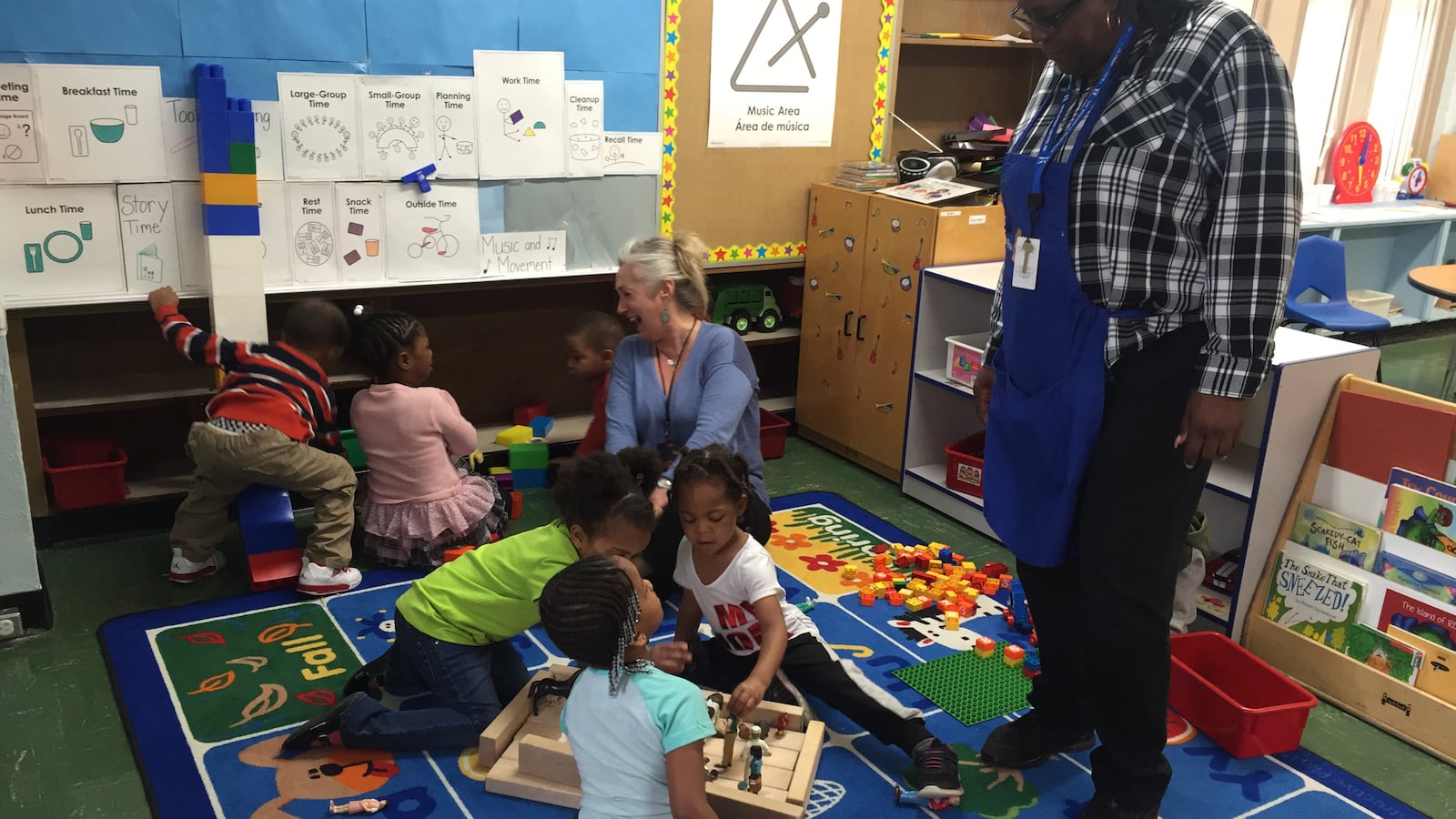Nearly every available spot in Detroit’s Head Start programs is full, a reversal after years of struggling with enrollment and facilities problems.
Just three years ago, hundreds of low-income children in the city were not attending a high-quality preschool, even though they could have gotten a subsidized slot.
Since then, Detroit has managed to enroll more low-income children in a program whose benefits could ripple through the rest of their lives. That’s a welcome sign of stability after years of tumult and uncertainty for families here who depend on Head Start.
And it’s a significant step forward for a city where 54% of children live in poverty, and where almost no students enter kindergarten prepared to learn. Researchers generally find that Head Start benefits low-income students.
“These are the kids who need the services most,” said Kaitlin Ferrick, director of Michigan’s Head Start Collaboration office. “The fact that they’re getting services is really important to our state.”
Virtually all of the 4,900 available seats in Head Start programs in Detroit Start were filled as of April, according to Patrick Fisher, a spokesman for the federal agency that runs Head Start.
Still, the number of available seats actually declined since last year, when it peaked at 5,200. Fisher said previous trouble with recruitment, facilities, and teacher-to-student ratios led Head Start to cut seats.
It is not unusual for Head Start programs to fill all of their seats — the national enrollment rate is 97%. By comparison, in 2016, Head Start programs in Detroit had managed to fill only about 84% of 4,895 slots. In 2015, just 71 percent of the available Head Start slots in Detroit were filled.
The 800 new students will get a free preschool experience — a lucky break in a state where private child care can rival the cost of university tuition. They’ll also get free meals and other services.
The city is still a long way from meeting demand for licensed child care, which is estimated at 23,000 slots.
Yet there are signs that a tumultuous decade for Head Start in the city has given way to greater stability.
The federal government reauthorized $55 million for various Head Start programs in the city over the next five years. The grants came after they failed to meet quality standards last year and were forced to reapply for federal dollars.
What’s more, the cast of nonprofits that run Head Start programs appears more stable.
“To my knowledge, the Head Start provider network had no new or departing organizations over the last year,” said Ann Kalass, CEO of Starfish Family Services, which runs a Head Start program in the city.
Head Start providers hope this marks the start of a new chapter. In 2012, Detroit officials acknowledged that the city-led Head Start program was badly mismanaged and asked local nonprofits to take over. The transition wasn’t easy — one of the city’s largest nonprofits dropped its program nearly two years ago, sending families in search of new programs.
What’s more, programs were hamstrung by deteriorating facilities, and they faced a severe shortage of teachers willing to do the difficult work of caring for young children for low wages.
Kalass’ organization and others have found ways to offer more seats with help from local philanthropies, which pitched in to renovate facilities and recruit families.
Over the last four years, eight foundations came together to help, calling themselves the Head Start Innovation Fund. They spent $5.9 million to publicize the programs and to convince teachers to stay in the classroom. They paid for professional development and wellness training for teachers; some programs held Zumba classes and served smoothies on twice-annual wellness days.
Also during that time, some programs in the city managed to find or renovate buildings that met federal standards for Head Start classrooms, Fisher said. The Kresge Foundation helped, in 2016 committing $20 million over five years to repair centers and build new ones.
(The Kresge Foundation also funds Chalkbeat. Read our code of ethics here.)
To make it all work, the city’s Head Start programs for the first time formed a collective last year, calling themselves the Detroit Head Start Provider Network. That collaboration made a big difference, Ferrick said.
“Filling 800 slots is very significant,” she said. “The ability for them to improve and coordinate in that way is very impressive.”

